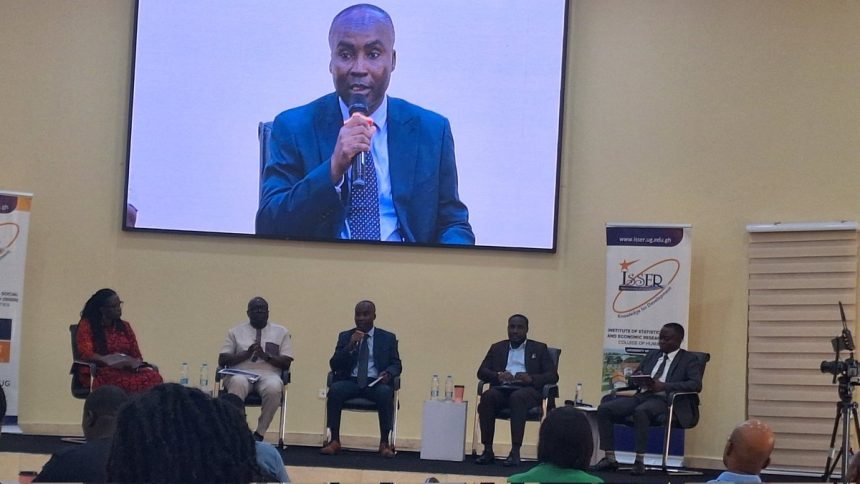The Institute of Statistical, Social and Economic Research (ISSER), in collaboration with over 10 partner institutions, hosted the latest edition of the Trade for Sustainable Development (TRADE4SD) conference at the University of Ghana. The initiative, which runs from June 2021 to May 2025, explores how trade can promote sustainability by advancing fair pricing, market access, improved livelihoods for farmers, and environmentally sound agricultural practices.
This year’s gathering brought together academics, policy experts, and trade practitioners to assess how global and national trade policies can better support development and environmental goals.
Prof. Martin Banse, Director of the Thünen Institute of Market Analysis in Germany, opened the conference by challenging the effectiveness of trade liberalization as a standalone approach to achieving global sustainability.
“Although many Europeans continue to support open markets, trade liberalization alone is insufficient. Despite efforts by the EU and the UN to use trade as a tool for sustainability, the outcomes so far have not met expectations.”
Prof. Banse advocated for a shift in strategy, recommending the inclusion of strong local content in agri-food trade policies, the redesign of trade agreements, and greater coherence between trade and broader policy frameworks.
In a panel discussion on EU-Ghana trade relations, Deputy Director of Research, Monitoring, and Evaluation at COCOBOD, Mr. Michael Amoah, identified the high cost of compliance with EU standards as a major barrier to trade, acknowledged that trade agreements have helped Ghana acquire crucial machinery and training to improve production quality.
“It costs Ghana over $16 million to meet EU regulatory requirements like the EURD. While these standards aim to ensure quality, the financial burden is enormous and diverts resources from development.”
Also speaking at the event, Senior Policy Analyst at the African Center for Economic Transformation (ACET), Mr. George Boateng, added that Ghanaian producers often struggle to meet EU standards, particularly in the horticulture sector.
“Many local producers face bans due to failure to comply with the EU’s maximum residue limits,” he said, emphasizing the urgent need for investment in compliance mechanisms and technical capacity.
The conference reinforced the message that for trade to be a true driver of sustainable development, it must be anchored in inclusive policies, support for local industries, and strong institutional frameworks.
–
Story by: Kwadwo Owusu Anane | univers.ug.edu.gh
Edited by: Wahab Abdul Razak





